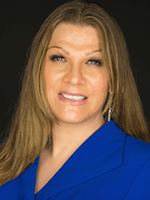
Kids are coming out at what seems like progressively younger ages, with middle school and even elementary school children self-identifying as transgender, gender-fluid, and other signifiers of gender nonconformity. Parents may not know where to turn and come to us: health professionals, teachers, school counselors, and other child and adolescent specialists who see their kids every day.
It used to be that children who were gender-nonconforming were relentlessly ridiculed by other kids at school, siblings, and even adults. The message was clear: There’s one correct way to be a boy, and another correct way to be a girl. No ambiguity of gender roles was allowed, and the word “transgender” was unknown. Resources for children and their families were scant and very difficult to access.
The problems of the past still haunt many kids, but not all. Gender-nonconforming tweens are often coming out into a world that’s far more supportive of them. Some have a strong identification and desire for expression as another gender. Others identify in a space that exists between male and female, and are creating or co-opting new language to reflect this.
More than ever, parents are aware of transgender issues. Not wanting to harbor the shaming environment that mental health professionals have for decades warned can lead to kids’ isolation and subsequent depression, drug abuse, and other problems, parents are seeking answers so that they can appropriately support their kids in creating happy and productive lives.
But just what, in this case, is appropriate? This is where we come in as professionals who serve children and their families.
It’s encouraging to meet the internet-savvy parents who burn the midnight oil on exhaustive Google searches of “transgender child” and related terms. However, the internet’s a powerful tool with an extraordinary amount of information as well as snake oil that’s offered as information (anyone who’s researched weight loss options can attest to that). As such, parents may need help in accessing quality behavioral health sources with a focus on social development.
Useful resources include:
-
American Academy of Pediatrics, which includes information for parents about their gender nonconforming or transgender child
-
American Psychological Association’s site, which offers excellent recommendations for parents
-
PFLAG (Parents, Families, and Friends of Lesbians and Gays), which provides a community of local and/or virtual support as well as excellent resources and information. Parents often find themselves exhausted and in need of support in learning to advocate for the child, particularly if the school system or region where they live is uncooperative and even hostile.
Certainly, not all of us have experience and expertise with transgender issues; but that’s no reason why we can’t be helpful to parents in need of support. With the right encouragement and a kind nudge toward usable and parent-friendly resources, we do our small part in furthering Walden’s mission of social change.
Dr. Stacee Reicherzer, the academic program director of the BS in Human Services and BS in Interdisciplinary Studies program in the Barbara Solomon School of Social Work and Human Services, is a recognized expert in the developing concept of “otherness,” the method by which people are made to feel left out, less than, humiliated, and immobilized in mind and spirit. She holds counseling supervisor licensure in the state of Texas. Follow Dr. Reicherzer on Facebook and Twitter.



